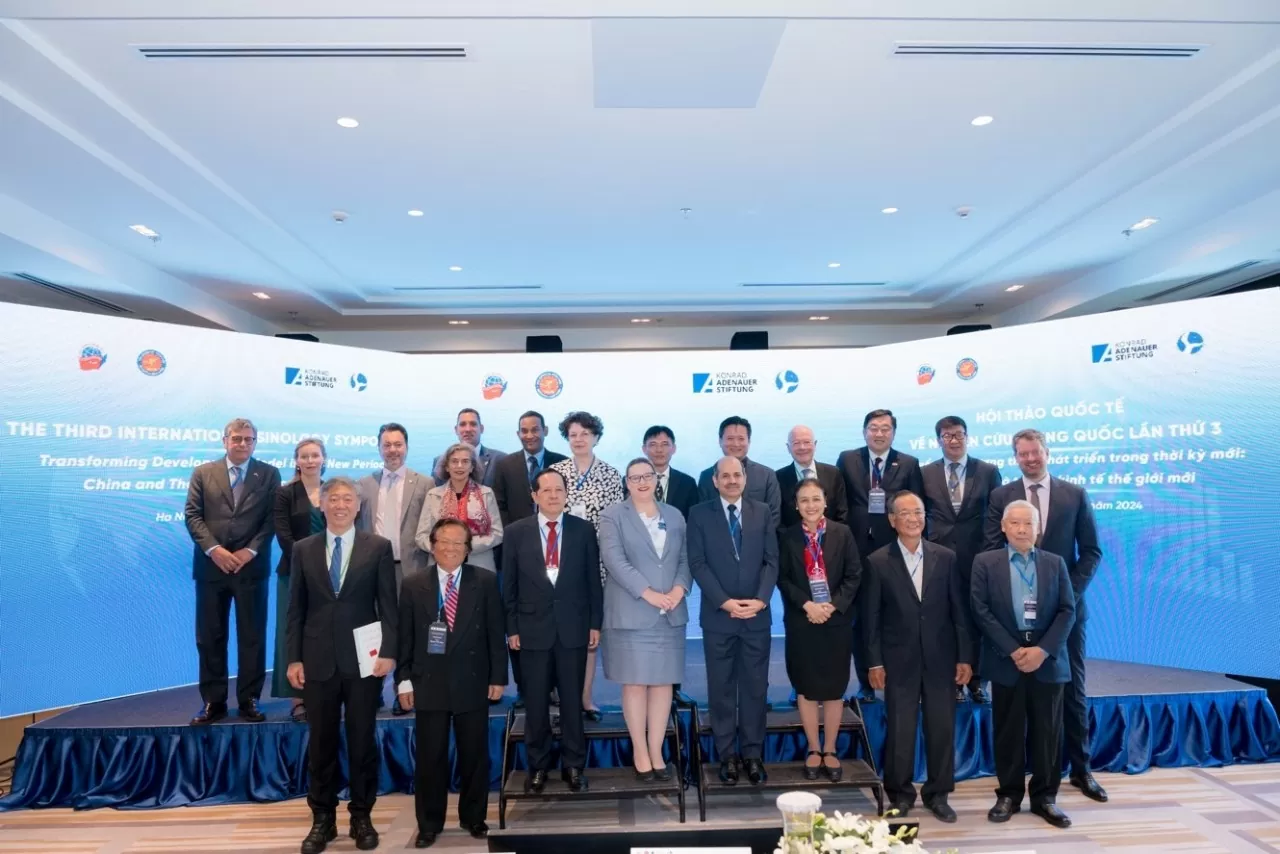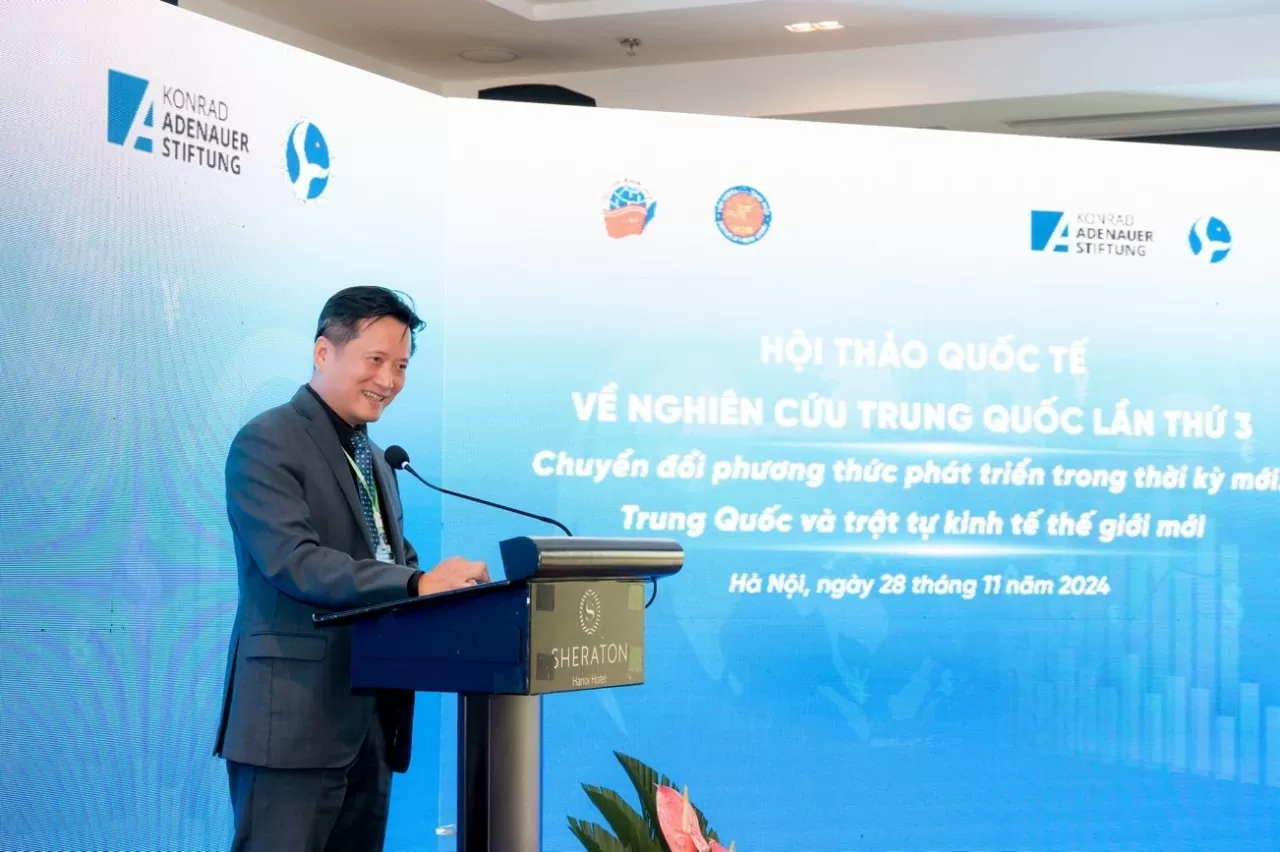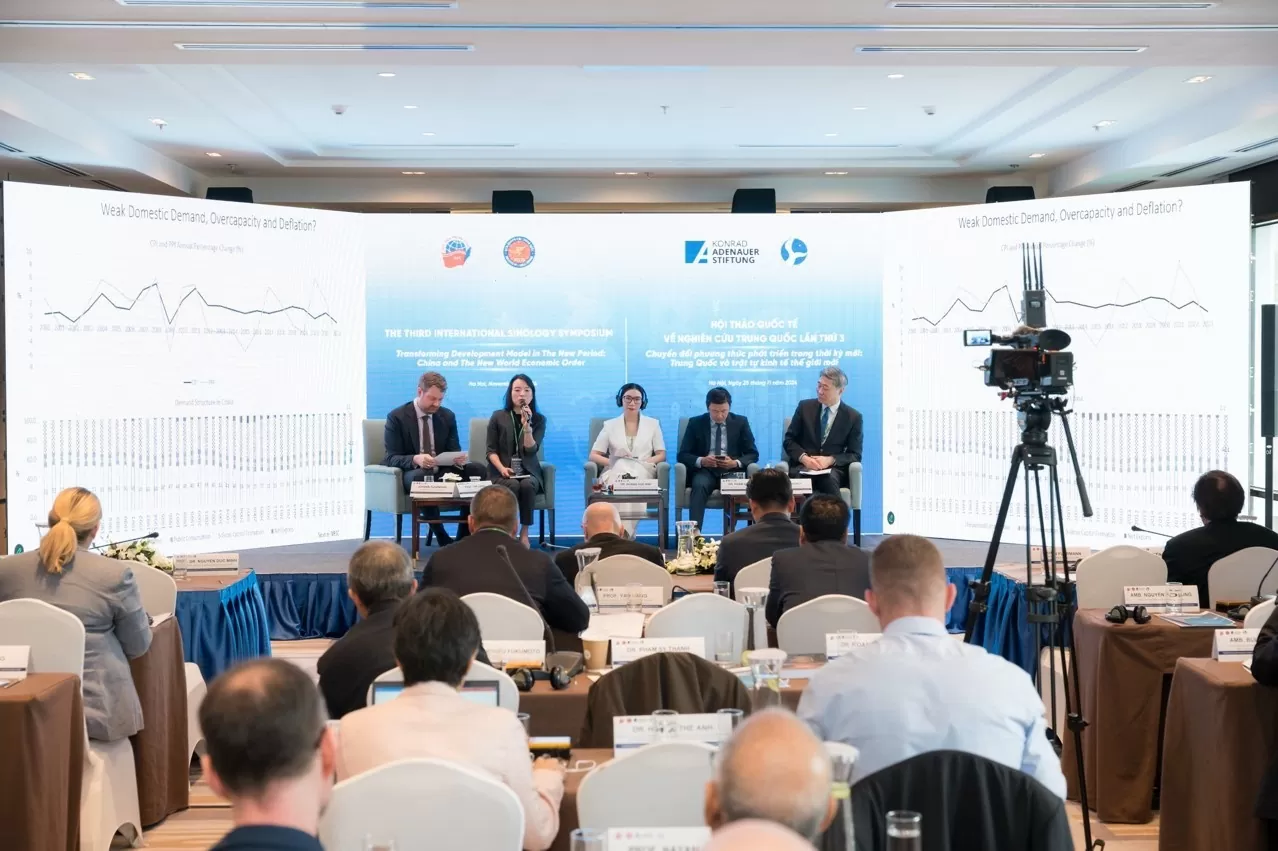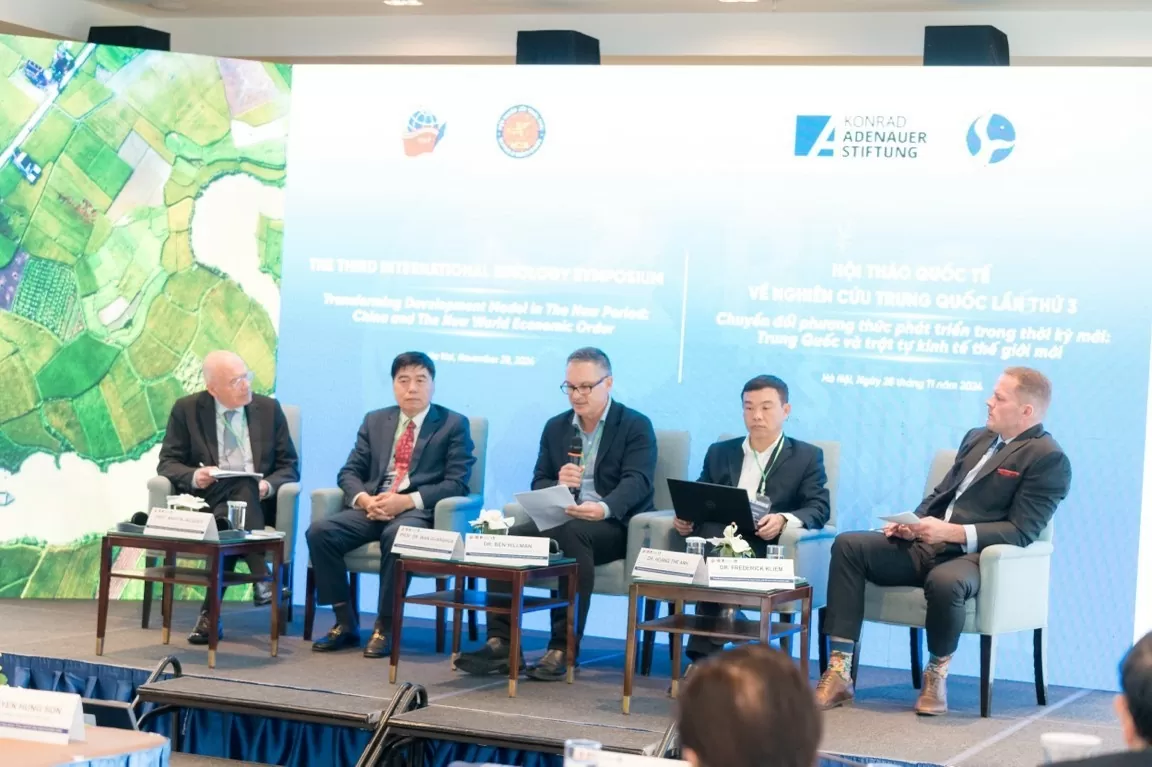
Transforming development model in the new period: China and the new world economic order
Latest
 |
| The third international symposium on “Transforming Development Model in the New Period: China and the New World Economic Order”. (Photo: PM) |
On November 28th, in Hanoi, Diplomatic Academy of Vietnam (DAV), in collaboration with the Viet Nam Academy of Social Science (VASS), Konrad Adenauer Stiftung (KAS) and Foundation for East Sea Studies (FESS) organized the third international symposium on “Transforming development model in the new period: China and the new world economic order” .
The 3rd International Sinology Symposium is a continuation of the successful China Talk series, initiated in 2013 and organized twice a year by the Diplomatic Academy of Vietnam. This year, the conference provides a forum for comprehensive discussion and in-depth understanding of the directions, prospects, and international impacts of economic reform measures issued in the 3rd Plenary Session of the Central Committee of Communist Party of China in July, 2024.
The conference convened nearly 150 delegates, including scholars, researchers, and experts on China, as well as leaders and former leaders, representatives of Vietnam’s research institutes, relevant ministries and agencies and foreign representative offices in Viet Nam.
 |
| Dr. Nguyen Hung Son, Vice President of the Diplomatic Academy of Viet Nam delivered opening remarks. (Photo: PM) |
In his opening remarks, Dr. Nguyen Hung Son, Vice President of the Diplomatic Academy of Vietnam, emphasized that China's development has far-reaching impacts on regional and global economies. He highlighted the significance of the conference in fostering exchanges, enhancing understanding of China’s development model transformation, and assessing its effects on the regional and global economy.
Associate Professor Dr. Nguyen Duc Minh, Vice President of the Vietnam Academy of Social Sciences, remarked that changes in the development model of China, the world’s second-largest economy, have profound impacts on global economic growth, trade, investment, and supply chains. Additionally, these changes will influence the regional security architecture and shape the future world order.
Alongside with the above opinion, Mr. Johann Fuhrmann, Representative of Konrad Adenauer Stiftung Beijing, stated that the world economy is undergoing a crucial phase as China shifts from a high-speed development model to a high-quality one. The conference was timely and provided a valuable opportunity for more in-depth and comprehensive discussions on China’s new economic development model.
In a frank and engaging academic atmosphere, with 11 presentations across 3 main sessions and a keynote session, scholars discussed topics ranging from policy guidelines to implementation practices, and from domestic impacts to foreign policy implications.
The keynote session featured two distinguished speakers: Professor Li Daokui, former member of the National Committee of the Chinese people's political consultative Conference, Director of the Academic Center for Chinese economic practice and thinking, Tsinghua University and Professor Martin Jacques, author of the renowned book “When China rules the world: the end of the Western world and the birth of a new global order”.
Professor Li Daokui evaluated the current economic situation in China, highlighting systemic challenges and potential solutions to achieve the country’s goal of becoming an upper-middle-income country by 2035. Meanwhile, Professor Martin Jacques clarified and analyzed the uniqueness of the Chinese modernization model, with a focus on technology development, energy transition, as well as the global implications.
 |
| Session 1 on Decoding the dynamic of China's economy focused on elucidating China's new economic reform policies. (Photo: PM) |
Session 1 on Decoding the dynamic of China's economy focused on elucidating China's new economic reform policies. In this session, the speakers analyzed the context, dynamic, goals as well as the challenges that the Chinese economy faces in its transition to a high-quality development model.
They emphasized that, in the face of domestic challenges and the volatile and complicated international situation, the Chinese government will continue to promote comprehensive reform, guide all sectors of the economy to expand new economic development opportunities, maintain a highly open economy and foster mutually beneficial global cooperation.
 |
| The session 2 named China's economy in prospect. (Photo: PM) |
In session 2 on China's economy in prospect, the speakers analyzed China's advantages and challenges in implementing economic reform measures. In addition to the solid foundation built by economic achievements over the past 40 years, China is increasingly facing various challenges, the most notable of which include trend of deglobalization, the increase in strategic competition and changes in China's demographics.
With the theme of Opportunities and Challenges for the region and the world, the final session focused on assessing the impact of China's economic reform measures on both the region and the world, particularly the shifts the shifts in the implementation process of global initiatives such as the Belt and Road Initiative (BRI) and the Global Development Initiative (GDI).
The 3rd international sinology symposium concluded successfully, providing comprehensive and in-depth perspectives on China's economic development orientation and its impacts on the world order.























